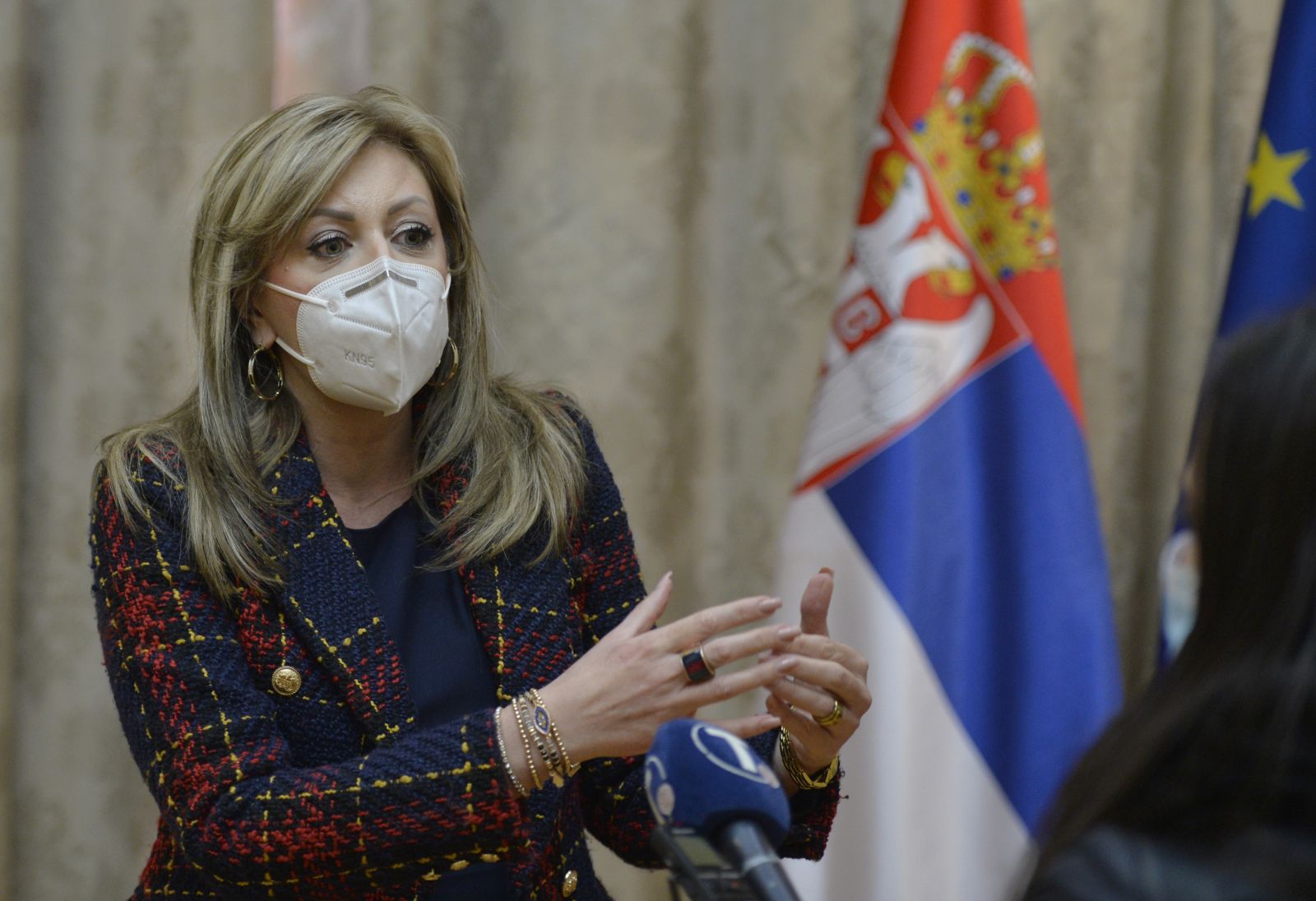
The call of the EP Rapporteur for Serbia, Vladimir Bilčík, for the opening of new negotiation chapters means that Serbia’s progress in the EU accession process has been confirmed, says Minister of European Integration Jadranka Joksimović, noting that Serbia has five chapters prepared for opening, of which Chapter 2 on the freedom of movement for workers has received the greatest support from EU member states.
Joksimović has assessed Bilčík’s draft Resolution on the Progress of Serbia, which should be presented at the EP’s Committee on Foreign Affairs in December, as “balanced”, noting that it “to a great extent” acknowledges parts and uses formulations from the European Commission’s annual progress report.
“It is good that there is a call for the opening of new chapters, either under the old or the new methodology. The call means that some progress in key areas has been noted. However, the EP, as a broad body that has a large scope of political groups and views, always introduces new rhetoric and narrative with regard to specific areas”, says Joksimović for Tanjug.
She stresses that Serbia has five prepared negotiating positions – Chapter 2 on the freedom of movement for workers, Chapter 14 on transport, Chapter 21 on trans-European networks, Chapter 3 on the right of establishment and freedom to provide services, and Chapter 27 on environment and climate change.
“These are the positions that have been submitted to the EC and that can be opened if member states agree that the progress made in the rule of law and the implementation of the Brussels Agreement is sufficient for the opening of at least one chapter, and I think there are elements to support that", says Joksimović.
According to her, just as the EC report, the Resolution focuses on the rule of law, media freedom and recommendations for the improvement of electoral conditions and political dialogue, which is particularly expected to be mentioned by the EP.
Joksimović points out that Bilčík’s draft Resolution contains good assessments of the economic performance, which she considers very important, recalling that the so-called Copenhagen criteria, which should apply equally to all countries, rely on three pillars – political criteria, economic criteria and good governance.
“Economic criteria play an important role in assessing the progress of a country. Our economy has proven to be resilient and flexible, that we have worked well and responsibly. The most important thing is that we are not a burden to anyone in the EU, and that is our great advantage as a candidate, which is recognised in this draft”, stressed Joksimović.
According to her, Belgrade’s commitment to the dialogue with Pristina is emphasised, along with the expectation of reaching a comprehensive agreement, which, Joksimović stresses, evidently is not so easy in practice.Joksimović explains that agreement on the Resolution among all MEPs is yet to follow after their submission of amendments, while the adoption of the document is expected in early 2021.
She recalls that Serbia has accepted the new EU enlargement methodology which does not focus on negotiations by individual chapters, but rather implies that individual chapters, grouped into six clusters, are an instrument for the opening of an entire cluster.
Joksimović says that she has invited her colleagues in the EU to organise a political intergovernmental conference where the accession process would be discussed at the highest level, regardless of whether Serbia will open chapters under the old or the new methodology.
She notes that, following the adoption of conclusions on enlargement, the new methodology provides for the holding of the intergovernmental conference with candidates, which implies discussions on the accession process and EU’s expectations from candidates, as well as candidates’ expectations, their perceived difficulties and advantages.
“[We expect] the way in which the new methodology will be applied to Serbia, which has opened more than half of the negotiation chapters, to be at least partially explained. This initiative has had a good response, because it shows that we have truly accepted the new methodology and that we want some of its elements to be applied immediately”, states Joksimović.
She stresses that she understands that, due to the situation with the negotiation processes of North Macedonia and Albania, for which the new methodology was initially intended, the EC cannot give candidates all the details, but, as Joksimović believes, it would be useful to explain, at the highest political level, how the new methodology will be applied and according to which procedures, so that Serbia could accelerate the process next year by opening entire clusters.
“We know what we have to do in terms of reforms, we haven’t lost sight of it for a single moment. The cluster approach is one dimension, but enhanced political steering of the process is even more important, and that is why we expect to discuss the process, accession negotiations, Serbia’s expectations and plans at the political level, so that we would enter 2021 better prepared and so that we would achieve better results”, concludes Joksimović.
Source: Tanjug









